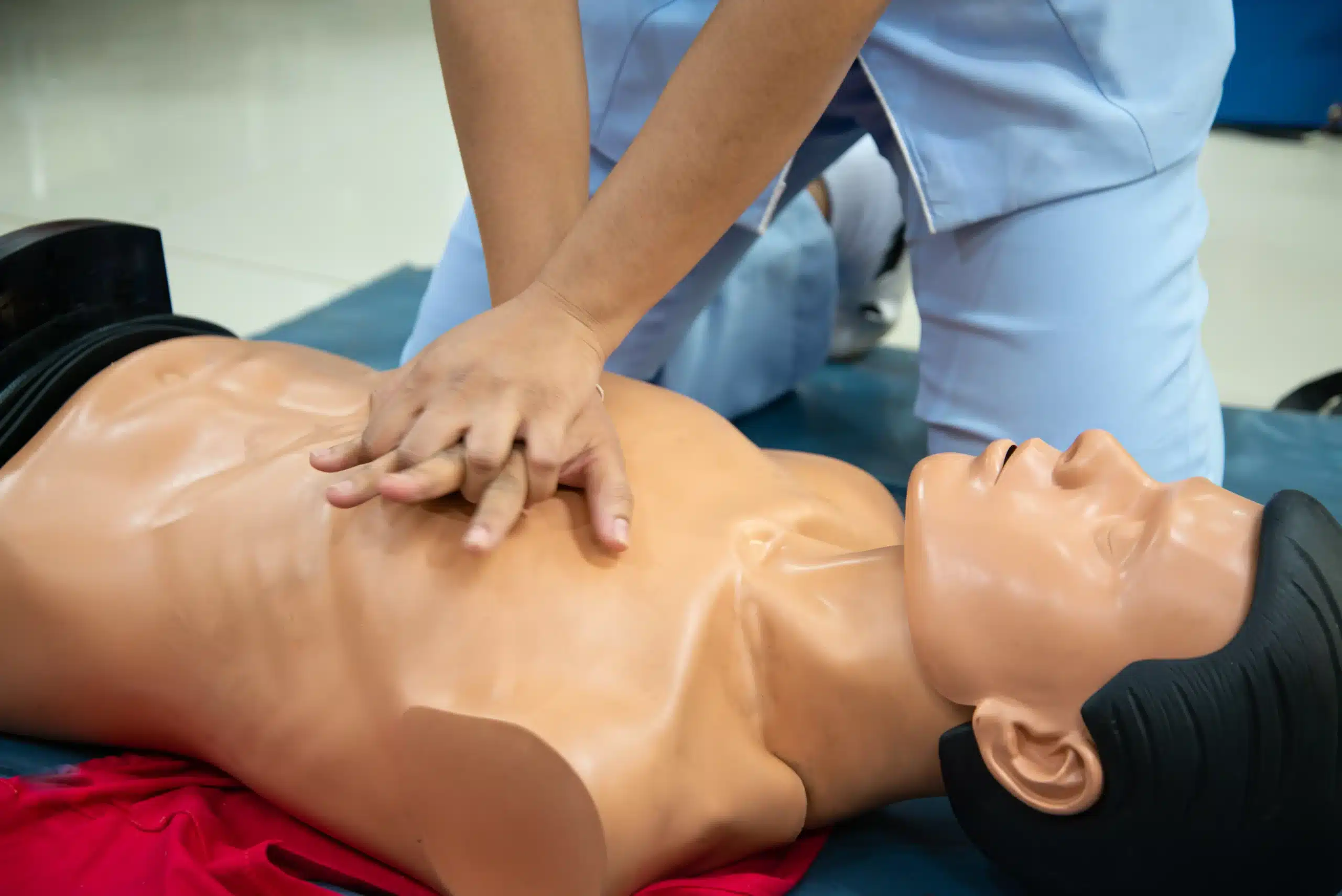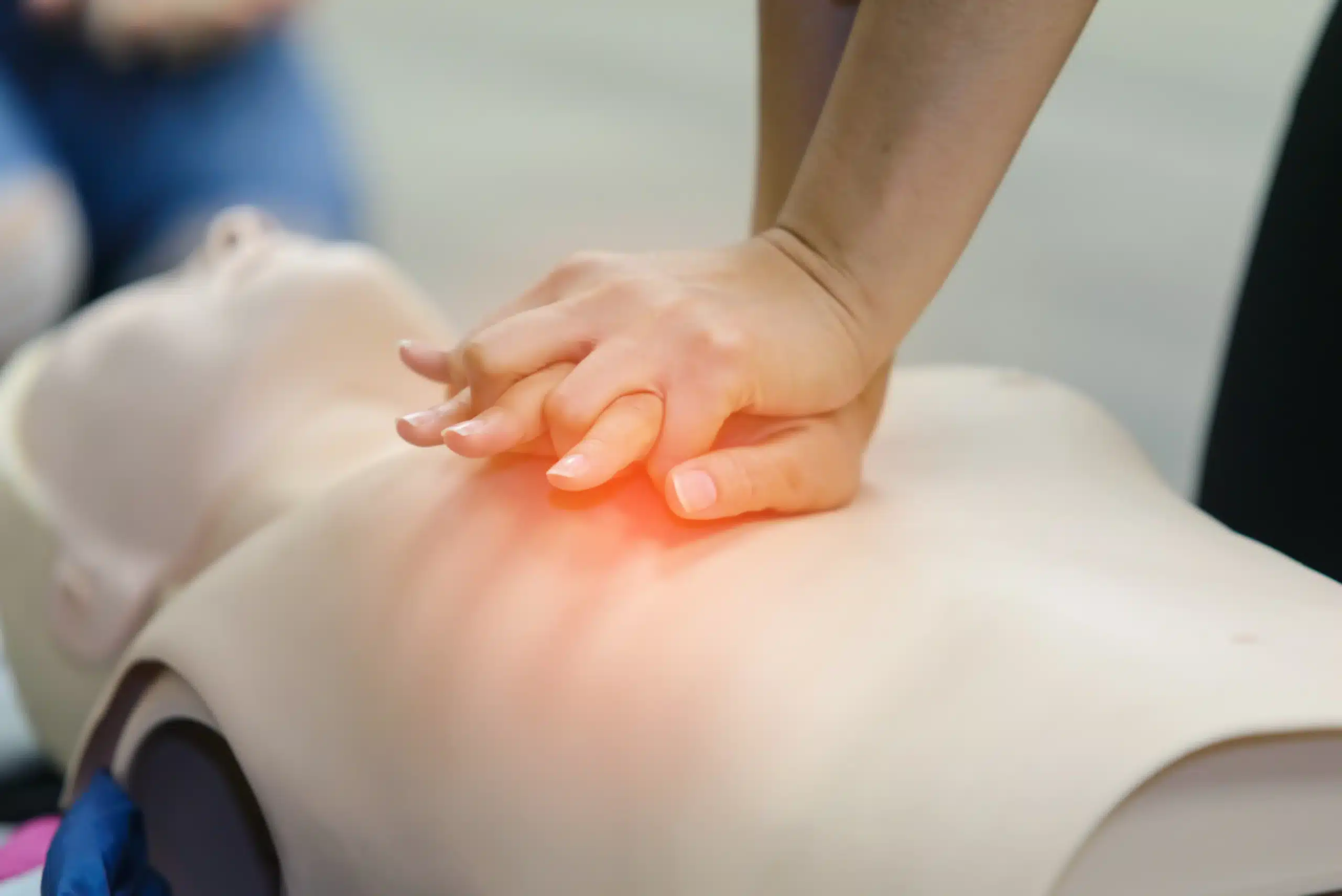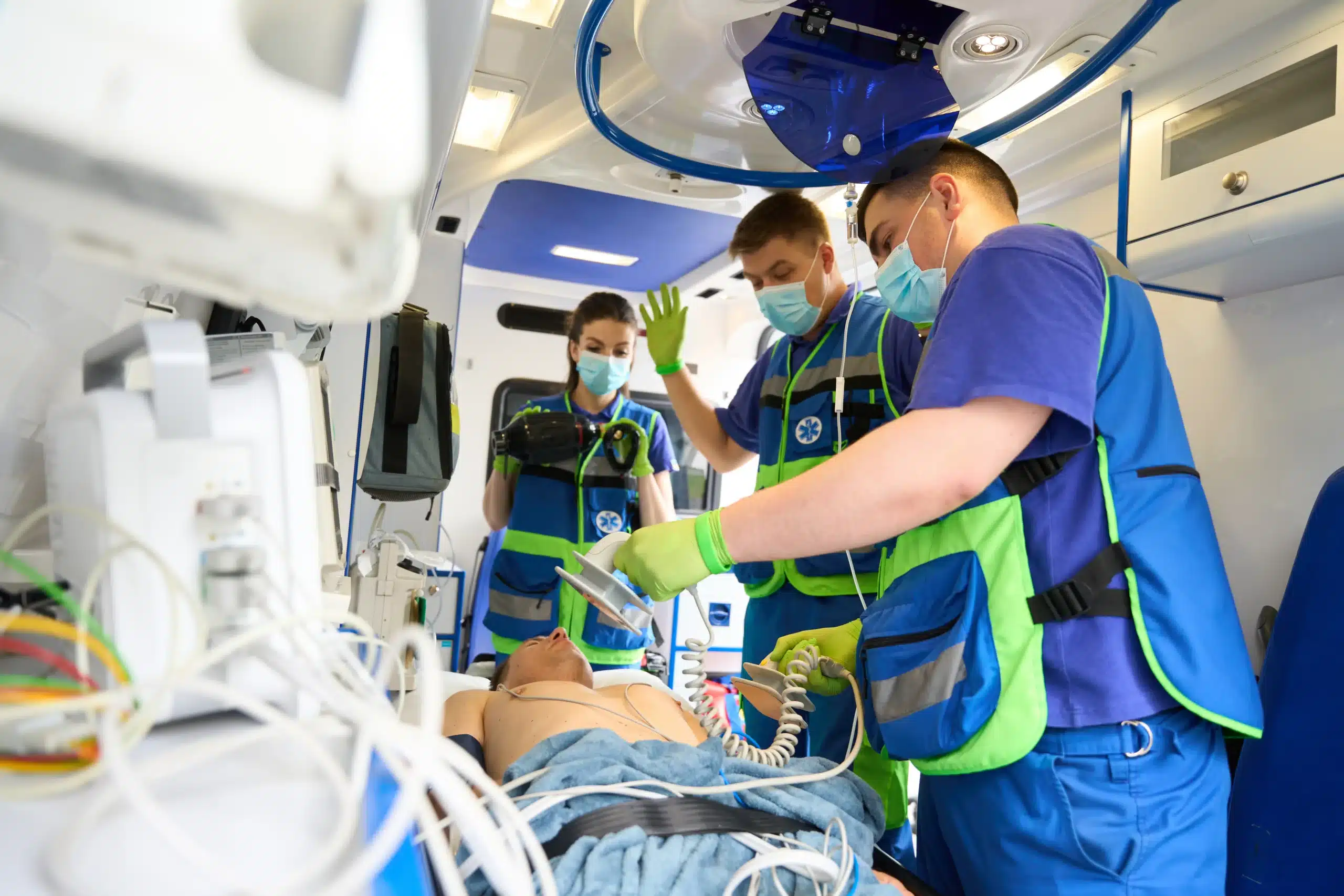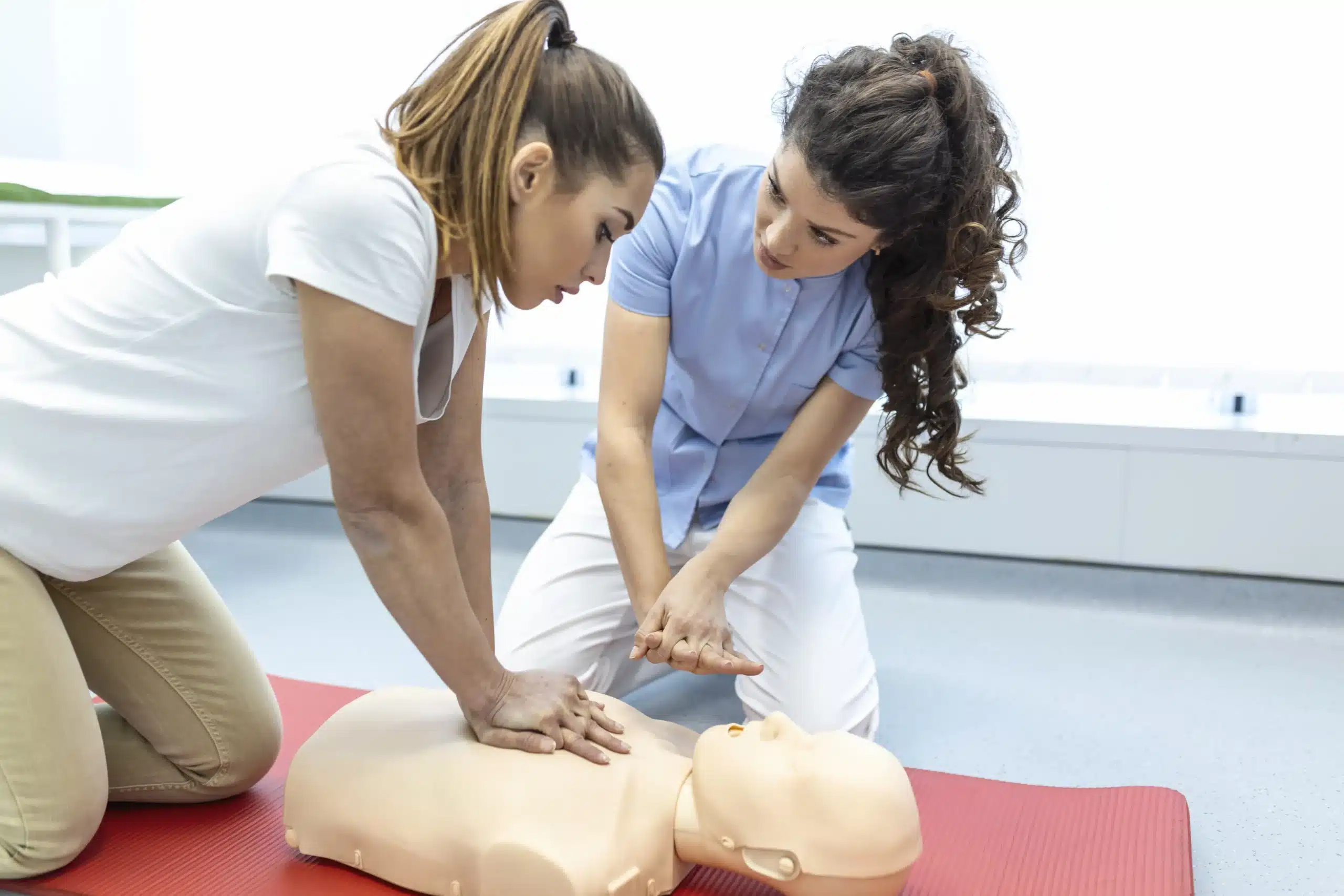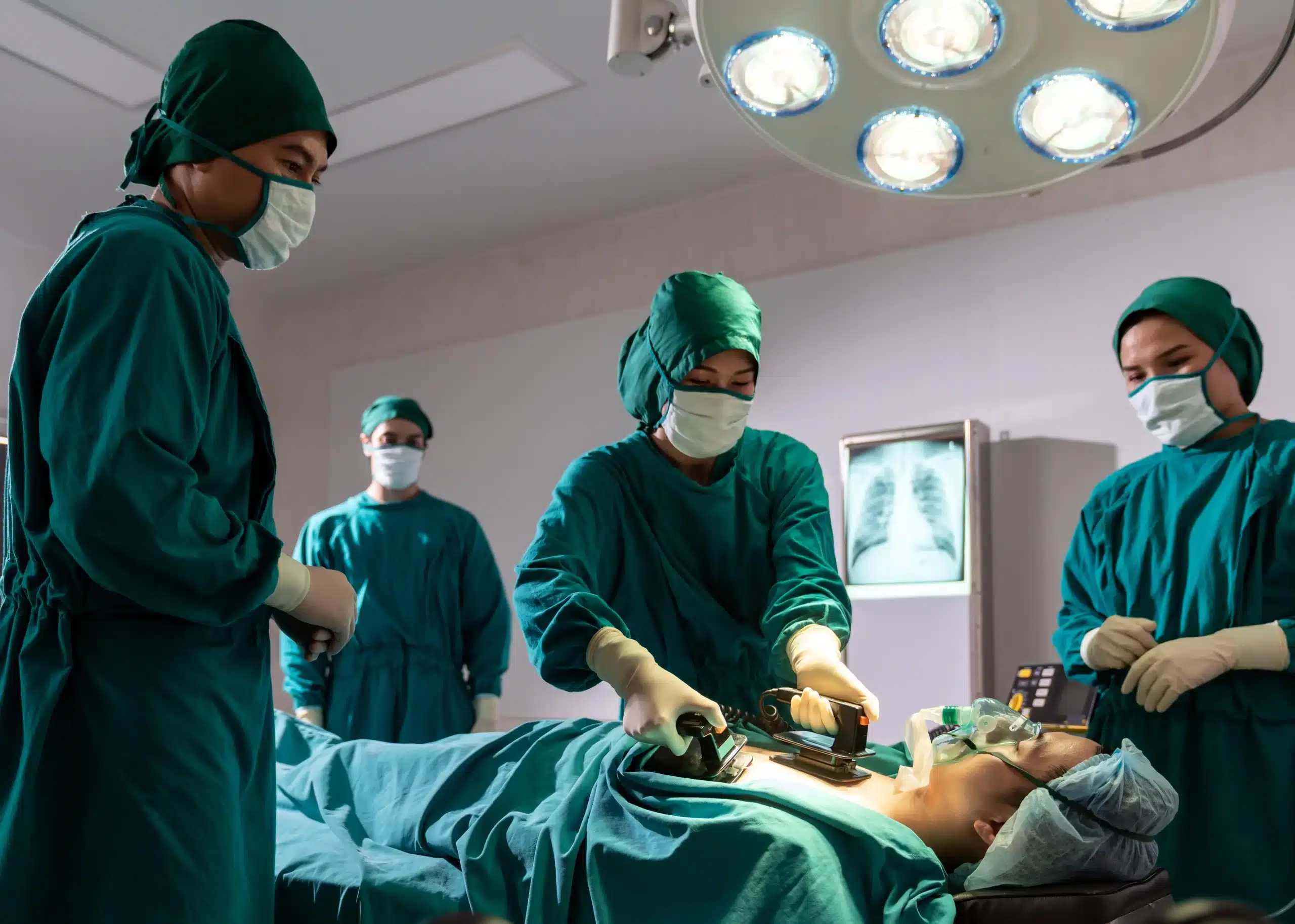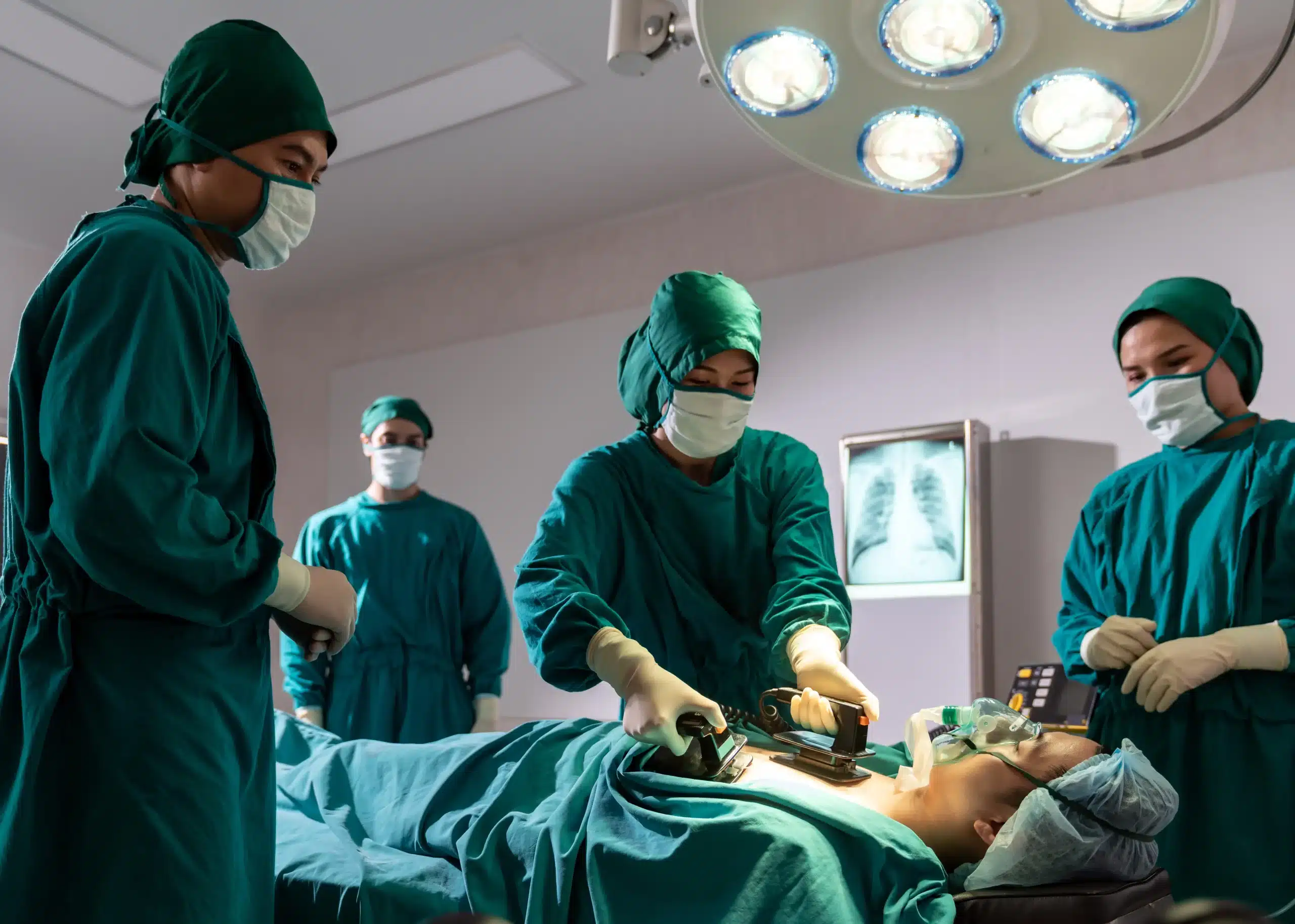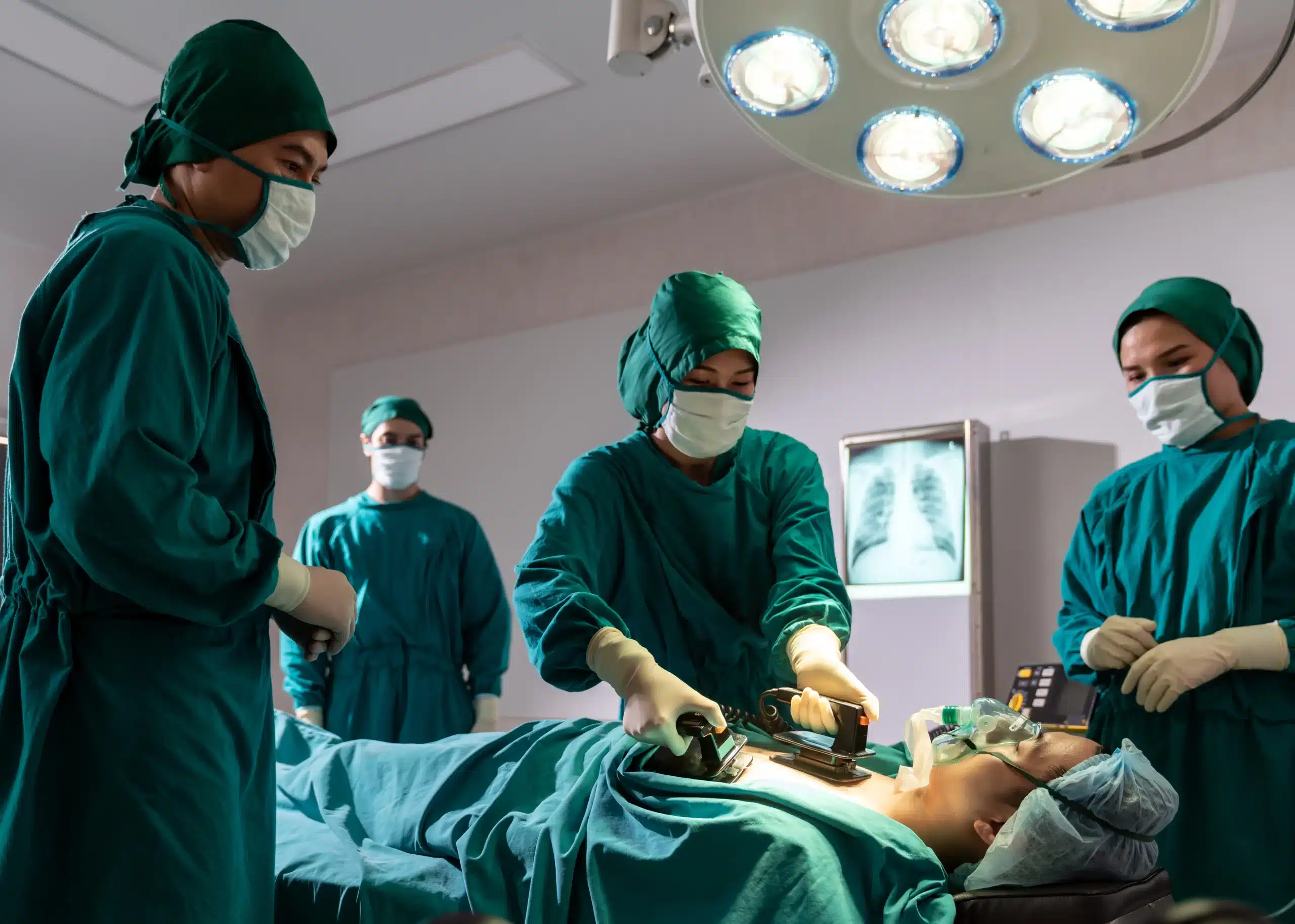Welcoming a newborn into the world is a joyous occasion, but sometimes, those first few moments require specialized care. As a healthcare professional, you know how crucial it is to be prepared for any situation. That’s where Neonatal Resuscitation Program (NRP) certification comes in. NRP training equips you with the skills and confidence to provide critical care to newborns immediately after birth. If you’re searching for NRP in Fairfax, this guide will walk you through everything you need to know, from understanding the importance of NRP to finding the right training program for you. We’ll cover the key components of NRP training, who should consider getting certified, and how to navigate the certification process. Plus, we’ll explore the impact of NRP on improving newborn outcomes and the ongoing advancements in neonatal resuscitation. Let’s dive in and empower you to provide the best possible care for newborns.
Key Takeaways
- NRP equips you for newborn emergencies: This training provides healthcare professionals with the essential skills and knowledge to confidently manage neonatal emergencies, focusing on a team-based approach and evidence-based practices.
- Certification fits your schedule: The blended learning format offers flexibility, combining online modules with hands-on skills checks, making it easier to obtain and maintain your NRP certification.
- Stay at the forefront of neonatal care: Continuous learning through updated resources and ongoing training ensures you’re up-to-date on the latest advancements, contributing to improved newborn outcomes.
What is NRP?
What is the Neonatal Resuscitation Program?
The Neonatal Resuscitation Program (NRP) is a specialized course co-sponsored by the American Academy of Pediatrics (AAP) and the American Heart Association (AHA). It provides an evidence-based approach to newborn care immediately after birth, focusing on effective teamwork among healthcare providers. The AAP emphasizes the program’s role in facilitating this team-based care for professionals attending to newborns. Think of it as the gold standard for ensuring newborns have the best possible start in life, especially those needing immediate medical attention. NRP training provides healthcare professionals with the skills to stabilize and resuscitate newborns in emergencies.
Why is NRP Important for Newborn Care?
NRP training offers significant benefits, improving newborn outcomes and enhancing the professional skills of healthcare providers. It equips professionals with the knowledge and skills to handle a range of emergency situations, ultimately increasing a newborn’s chances of survival and thriving. Investing in NRP training demonstrates a commitment to the highest standard of care for newborns. This training is crucial for anyone involved in newborn care, ensuring they can respond effectively and confidently in critical moments. The NRP course fosters teamwork and communication among healthcare professionals during and immediately after delivery. This collaborative approach is essential for positive outcomes.
Key Components of NRP Training
NRP training equips healthcare providers with the knowledge and skills to effectively resuscitate newborns. It emphasizes a team-based approach, ensuring everyone can work together seamlessly during this critical time. The training covers a range of topics, from basic life support to advanced procedures, all grounded in evidence-based practices. This comprehensive approach helps build confidence and competence in managing neonatal emergencies.
Essential Skills You’ll Learn in NRP
The Neonatal Resuscitation Program (NRP) focuses on essential skills for newborn care immediately after delivery. You’ll learn how to quickly assess a newborn’s condition and provide initial steps like clearing the airway. The program also covers chest compressions, medication administration, and other advanced procedures, including positive-pressure ventilation. These skills are crucial for stabilizing a newborn and ensuring the best possible outcome. NRP training isn’t just about learning individual skills; it’s about understanding how they fit together in a coordinated resuscitation effort.
Evidence-Based Practices and Protocols
NRP training adheres to evidence-based practices and established protocols. This means the techniques you learn are backed by research and proven effective. The program emphasizes the importance of consistently following these protocols to ensure the highest standard of care. Elite Medical Training highlights how NRP improves newborn outcomes. By adhering to these evidence-based practices, healthcare professionals contribute to giving every newborn a better chance at a healthy life. CPR123 points out how NRP fosters a commitment to excellence in neonatal care.
Who Should Take NRP Training in Fairfax?
Healthcare Professionals
NRP certification is highly recommended for healthcare providers directly involved in the delivery and immediate care of newborns. This includes physicians, nurses, respiratory therapists, and midwives. Anyone who plays a role in those first critical moments of a newborn’s life should have the knowledge and skills NRP training provides. These skills are essential for positive outcomes for newborns requiring resuscitation. The Neonatal Resuscitation Program promotes an evidence-based approach to newborn care, empowering healthcare professionals to deliver effective, team-based care during and immediately after delivery. For those serving the San Rafael, Corte Madera, and Fairfax areas, finding a local provider like San Rafael CPR Classes simplifies access to this important training.
Other Individuals Who May Benefit
While NRP certification is crucial for those mentioned above, other members of the healthcare team also benefit from this training. This includes anyone who may be present during a delivery or involved in subsequent newborn care, such as physician assistants, neonatal nurse practitioners, and other medical personnel who support the core delivery team. Students pursuing careers in these fields will find NRP training invaluable. The emphasis on critical thinking and quick decision-making under pressure, honed through NRP training, are valuable assets for anyone involved in newborn care. Easy access to NRP training in Fairfax makes it convenient for those in Marin County to pursue this valuable certification.
Get NRP Certified in Fairfax
Local Hospitals and Training Centers
Fairfax has several respected hospitals and training centers offering Neonatal Resuscitation Program (NRP) certification. Fairfax Neonatal Associates (FNA) is one well-regarded provider delivering specialized neonatal care across Northern Virginia. With a team of over 65 professionals, FNA cares for more than 16,000 infants each year at four Inova hospitals: Inova L.J. Murphy Children’s Hospital, Inova Fair Oaks Hospital, Inova Loudoun Hospital, and Inova Alexandria Hospital. This large network gives healthcare professionals in the area access to quality training and resources.
NRP Courses at San Rafael CPR Classes
If you’re looking for NRP certification, San Rafael CPR Classes offers comprehensive NRP courses designed for healthcare professionals. These courses will equip you with the skills to resuscitate and stabilize newborns. Classes are held daily at our San Rafael location, with convenient hours from 8 am to 10 pm. We also offer certification in CPR, BLS, ACLS, PALS, and First Aid to provide well-rounded training. We’re located at 4340 Redwood Hwy, Suite F-154, San Rafael, CA 94903.
How to Get NRP Certified
Steps to Obtain NRP Certification
Becoming NRP certified is a straightforward process. First, enroll in a Neonatal Resuscitation Program (NRP) course. These courses, co-sponsored by the American Academy of Pediatrics and the American Heart Association, offer an evidence-based approach to newborn care with a strong focus on teamwork. The NRP course equips healthcare professionals with the knowledge and skills to confidently manage newborns at birth.
After completing the NRP course, you’ll take a certification exam. This exam typically includes a 50-question multiple-choice test and hands-on training evaluations. For more details about the certification process, visit the official website.
Renewal Requirements
Your NRP certification is valid for two years. Upon finishing the course and evaluations, you’ll receive an NRP eCard, good for two years. To renew, complete online modules, which usually take three to five hours. Then, schedule an in-office skills check with an instructor, typically lasting about three hours. SureFire CPR provides a helpful overview of NRP renewal. This blended approach ensures your skills and knowledge stay current.
NRP Training Methods and Resources
In-Person vs. Online Learning
The Neonatal Resuscitation Program (NRP) understands that busy healthcare professionals need flexibility. That’s why NRP offers a blended learning approach that combines online learning with essential hands-on training. You can typically complete the online modules at your own pace, usually within 3–5 hours. This online portion covers the core knowledge and principles of neonatal resuscitation. After completing the online modules, you’ll participate in a 3-hour in-office skills check with a certified NRP instructor. This practical session focuses on applying the knowledge you’ve gained online, ensuring you’re confident and competent in performing neonatal resuscitation techniques.
This blended learning model allows you to fit NRP training into your busy schedule without compromising the quality of your education. The combination of online learning and in-person skills practice ensures you receive both the theoretical knowledge and the practical experience necessary to provide effective care to newborns in need. The NRP course emphasizes an evidence-based approach, giving you the tools and confidence to handle neonatal emergencies effectively as part of a team.
Supplementary Materials and Tools
The NRP curriculum is regularly updated to reflect the latest advancements in neonatal resuscitation. These updates often include new educational materials and resources designed to enhance learning and improve patient outcomes. Updated resources may include textbooks, online modules, and simulation tools. The program’s commitment to modern educational methodologies ensures that healthcare professionals receive the most current and relevant training available.
Beyond the core curriculum, NRP also emphasizes the importance of teamwork and communication in neonatal resuscitation. NRP training often incorporates simulation scenarios that allow healthcare professionals to practice working together as a team, developing crucial communication and coordination skills. This focus on teamwork helps prepare healthcare providers to respond effectively in real-life emergency situations, ultimately improving the quality of care provided to newborns.
Prepare for Your NRP Course in Fairfax
What to Expect During Training
The Neonatal Resuscitation Program (NRP) course provides an evidence-based approach to newborn care immediately after birth. It emphasizes effective team-based care for healthcare professionals present during delivery. You’ll learn how to assess newborns, identify and use essential resuscitation equipment, and perform techniques like positive pressure ventilation. The NRP course is designed for healthcare providers such as nurses, doctors, and respiratory therapists who are involved in the immediate care of newborns. Expect a combination of lectures, demonstrations, and hands-on simulations. This blended learning approach helps solidify the information and prepares you for real-world scenarios. NRP Certification is a valuable asset for any healthcare professional involved in newborn care.
Tips for Successful Completion
Going into your NRP training prepared can significantly impact your learning experience. Before class, familiarize yourself with the course materials and the different types of neonatal resuscitation equipment. Understanding the function of devices, such as positive pressure ventilation equipment, will give you a head start. Active participation and asking questions during the course will also help you fully grasp the concepts. Review key concepts before your training to maximize your learning. Remember, consistent training and application of NRP principles are essential in any healthcare setting providing newborn care. Consider exploring additional resources and study guides, like this comprehensive NRP Guide, to further enhance your understanding. With the right preparation and a proactive approach, you’ll be well-equipped to succeed in your NRP course and confidently provide the best possible care for newborns.
Overcome NRP Training Challenges
Common Barriers to Certification and Practice
Obtaining your NRP certification is a critical step for healthcare providers involved in neonatal care. However, there are some common hurdles people face. One challenge is mastering the equipment used in neonatal resuscitation, such as positive pressure ventilation devices. It’s understandable that getting comfortable with these tools takes time and practice. Another obstacle is access to training. For some healthcare professionals, like obstetric physicians, fitting NRP training into already demanding schedules can be tough.
Strategies for Improved Accessibility and Integration
Thankfully, the Neonatal Resuscitation Program recognizes these challenges and has adapted. The 8th edition of the NRP uses new teaching methods to better suit the needs of healthcare professionals. This makes the material more accessible and the learning process smoother. Additionally, the American Academy of Pediatrics (AAP) has partnered with RQI Partners to strengthen NRP education and training. This collaboration aims to make high-quality training more readily available, ultimately improving the care newborns receive. These improvements are making a real difference in how healthcare providers learn and apply these life-saving skills.
NRP’s Impact on Neonatal Care in Fairfax
Improved Newborn Outcomes
The Neonatal Resuscitation Program (NRP) plays a vital role in improving outcomes for newborns in Fairfax and beyond. The program emphasizes a team-based approach, ensuring everyone involved in a newborn’s care is prepared and working together seamlessly. This coordinated effort is essential for handling emergencies effectively and contributes to better health outcomes for these tiny patients. The NRP equips healthcare providers with the knowledge and skills to stabilize newborns quickly, minimizing the risk of complications and ensuring the best possible start in life. This results in improved survival rates and a reduction in long-term health issues. The Neonatal Resuscitation Program provides an evidence-based approach to newborn care at birth.
Advancements in Neonatal Resuscitation
NRP training isn’t just about initial certification; it’s about fostering continuous improvement in neonatal care. Ongoing NRP training broadens professional horizons and embodies a commitment to excellence in neonatal care. Ongoing training in NRP is crucial for any healthcare setting dealing with newborns. By embracing advancements and prioritizing ongoing training, Fairfax healthcare providers demonstrate their dedication to providing the best possible care for newborns in the community. You can explore additional NRP resources online.
NRP Resources and Support in Fairfax
Local Support Networks
Finding reliable neonatal care is crucial for new parents and healthcare providers. In Fairfax, you have access to a strong network of support, starting with Fairfax Neonatal Associates (FNA). This group of over 65 professionals provides neonatal care across four Inova hospitals: Inova L.J. Murphy Children’s Hospital, Inova Fair Oaks Hospital, Inova Loudoun Hospital, and Inova Alexandria Hospital. This extensive network, with its many providers, increases access to specialized infant care throughout the region. Knowing you have a solid support system like FNA nearby offers peace of mind.
Ongoing Education and Professional Development
The Neonatal Resuscitation Program (NRP) course is a cornerstone for healthcare professionals involved in newborn care. This program focuses on team-based care and prepares individuals to handle any challenges during delivery. Taking an NRP course not only enhances your skills but also reinforces your commitment to providing excellent care for newborns. Continued education in neonatal care is vital, and resources like those offered through RQI Partners, in collaboration with the American Academy of Pediatrics (AAP), demonstrate the ongoing commitment to improving neonatal care practices. Investing in NRP training ensures that every newborn has a strong start and contributes to better health outcomes overall.
Related Articles
- NRP in San Rafael: The Complete Guide – San Rafael CPR Classes
- NRP Classes in San Rafael, CA – San Rafael CPR Classes
- RQI Training in Corte Madera: Everything You Need to Know – San Rafael CPR Classes
- First-Aid Training in San Rafael: A Complete Guide – San Rafael CPR Classes
Frequently Asked Questions
What exactly does NRP cover?
NRP training focuses on the immediate care of newborns, teaching healthcare providers how to assess a newborn’s condition, clear the airway, perform chest compressions, administer medications, and use specialized equipment like positive pressure ventilation devices. It’s a comprehensive program covering everything from basic life support to more advanced procedures.
Why is NRP certification important?
NRP certification demonstrates a commitment to the highest standard of newborn care. It equips healthcare professionals with the skills to respond effectively in emergencies, ultimately improving newborn outcomes and increasing survival rates. It’s not just about individual skills; it’s about fostering teamwork and communication among healthcare providers during critical moments.
Who should consider getting NRP certified?
While crucial for healthcare professionals directly involved in delivery and newborn care (physicians, nurses, respiratory therapists, midwives), NRP training also benefits other medical personnel who may be present during delivery or involved in subsequent newborn care. This includes physician assistants, neonatal nurse practitioners, and other support staff. Students pursuing careers in these fields will also find NRP training invaluable.
How can I get NRP certified in the San Rafael area?
San Rafael CPR Classes offers comprehensive NRP courses designed for healthcare professionals. They provide convenient daily classes, making it easier to fit this important training into your schedule. They also offer certification in other essential areas like CPR, BLS, ACLS, PALS, and First Aid.
How do I maintain my NRP certification once I have it?
NRP certification is valid for two years. To renew, you’ll complete online modules and then participate in an in-person skills check with a certified NRP instructor. This blended approach ensures your skills and knowledge remain current, allowing you to continue providing the best possible care for newborns.
